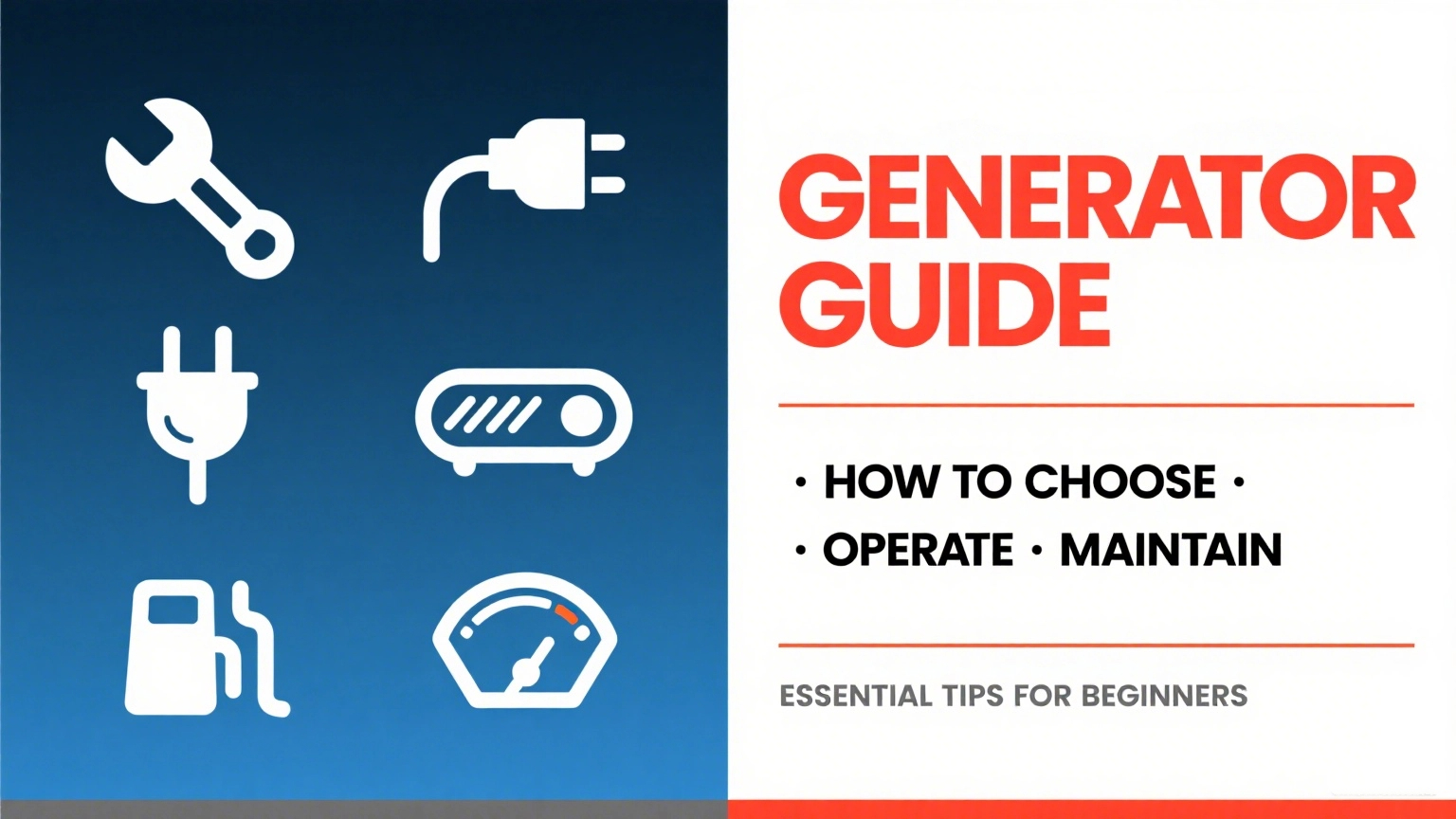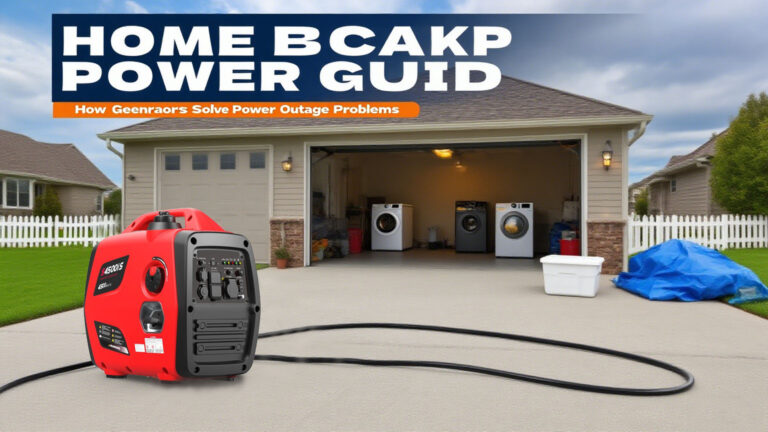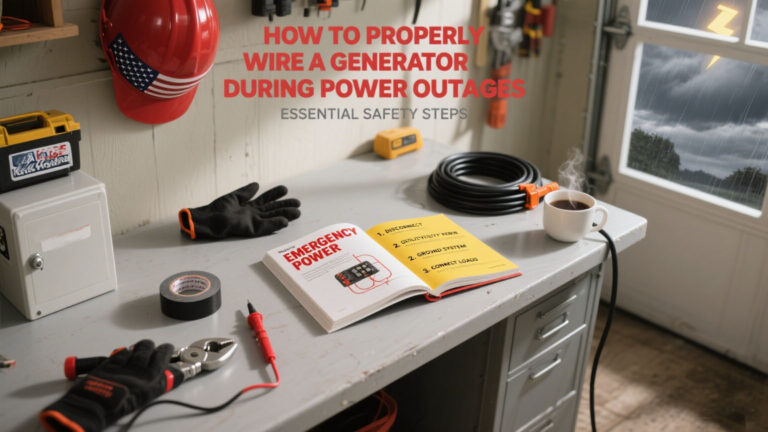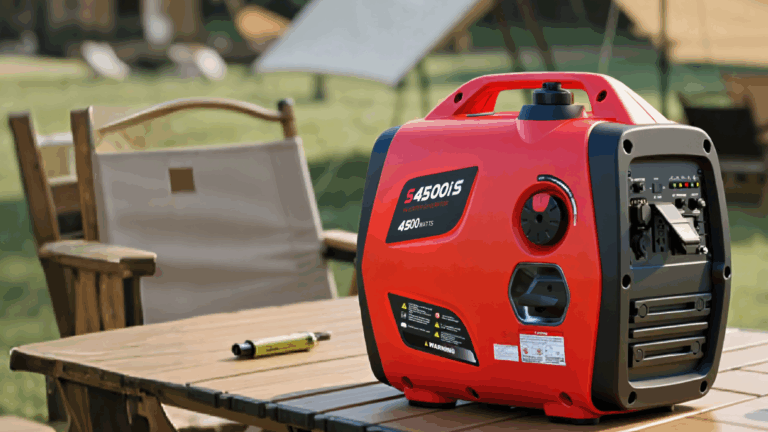Generator Beginner’s Guide: Everything You Need to Know
When the power goes out, or when you’re camping off-grid, one device can make all the difference: a generator. If you’re new to generators, it can feel overwhelming to choose the right type, power capacity, and features. This guide will walk you through the essentials—perfect for beginners who want a clear and practical understanding.
🔌 What Is a Generator?
A generator is a machine that converts mechanical energy into electrical energy through electromagnetic induction. In simple terms, fuel powers an engine, which spins an alternator to create electricity you can use to run appliances, tools, or even an entire home during an outage.
⚙️ Types of Generators
When searching for the best generator for home or outdoor use, you’ll likely encounter these common types:
- Gasoline Generators
- ✅ Affordable, easy to start, compact.
- ❌ Higher fuel consumption, louder, not ideal for long-term use.
- Diesel Generators
- ✅ Durable, fuel-efficient, reliable for heavy-duty or industrial use.
- ❌ Heavier, noisier, higher upfront cost.
- Natural Gas Generators
- ✅ Eco-friendly, lower emissions, quieter operation.
- ❌ Requires gas supply infrastructure, less portable.
- Inverter Generators
- ✅ Clean and stable electricity, safe for laptops, smartphones, and sensitive electronics.
- ❌ Smaller power capacity, usually more expensive.
📊 How to Choose the Right Generator
Before buying, consider these factors:
1. Power Needs
- Add up the wattage of appliances you want to run (fridge 300W, microwave 1000W, etc.).
- Multiply by 1.2–1.5 to account for startup surges.
- Example: If you need ~2000W, buy a generator with at least 2500–3000W.
2. Usage Scenarios
- Home backup generator: Choose quiet inverter models (2–5 kW).
- Camping/RV generator: Lightweight, portable, 1–3 kW is usually enough.
- Jobsite generator: Diesel-powered, high output (5 kW+).
3. Noise Level
- For residential use, look for quiet portable generators.
- On construction sites, noise is less of a concern.
🛠️ Generator Safety & Maintenance
To keep your generator running safely and efficiently:
- ✅ Ventilation: Never run indoors to prevent carbon monoxide poisoning.
- ✅ Routine maintenance: Change oil, replace filters, and check spark plugs.
- ✅ Avoid overloading: Don’t exceed the rated capacity.
- ✅ Safe wiring: Use heavy-duty cords and follow grounding instructions.
🔋 Generator vs. Portable Power Station
A frequent question is: Should I buy a generator or a portable power station?
- Generators: Continuous power as long as fuel is available. Best for long-term outages.
- Portable Power Stations: Battery-based, clean, silent, but limited runtime. Perfect for camping or short trips.
👉 For extended blackouts, a generator is the better choice. For lightweight, eco-friendly use, portable power stations shine.
🌍 Future Trends in Generators
Modern generators are evolving with technology and sustainability in mind:
- Hybrid fuel systems (solar + gas).
- Smart monitoring via mobile apps.
- Stricter emissions compliance with cleaner engines.
- Ultra-quiet inverter generators for urban and home use.
❓ FAQ
1. What size generator do I need for my house?
For basic appliances (fridge, lights, small devices), a 3–5 kW generator is sufficient. For whole-home backup, 10 kW+ may be required.
2. Can I run a generator indoors?
No. Always use it outdoors in a well-ventilated area.
3. How long can a portable generator run?
Most run 8–12 hours on a full tank, depending on size and load.
4. What’s the difference between an inverter generator and a regular one?
Inverter generators provide stable, clean power for sensitive electronics and are usually quieter.
5. How often should I maintain my generator?
Check oil every 20–50 hours of use. Replace filters and spark plugs as recommended by the manufacturer.
✅ Conclusion
A generator is more than just a backup device—it’s peace of mind. Whether you’re looking for the best portable generator for camping, a home standby generator, or an industrial diesel unit, knowing the basics will help you choose wisely. With proper care, a generator can serve you reliably for years.






